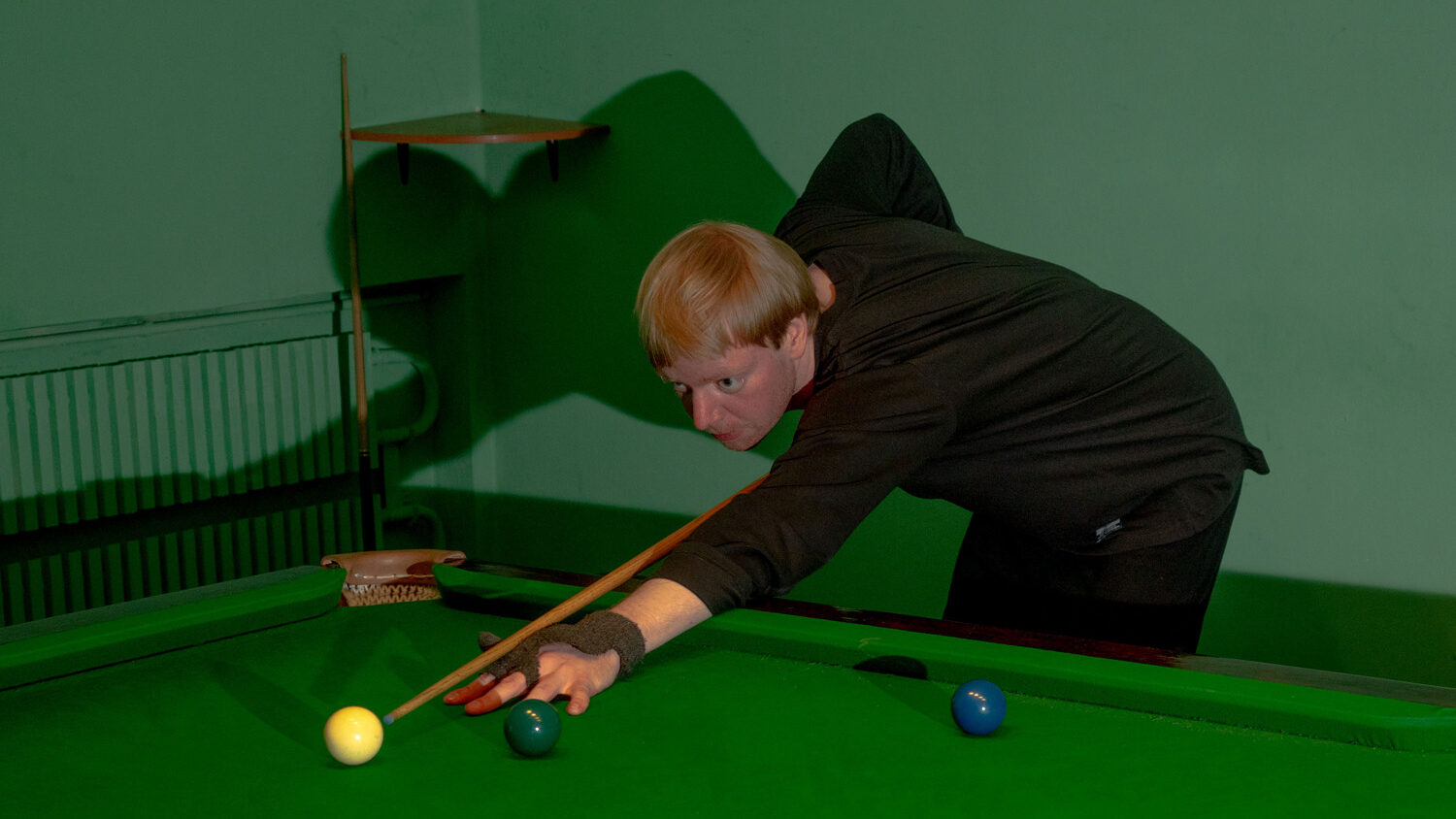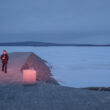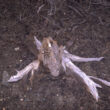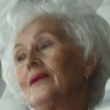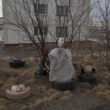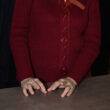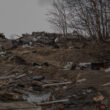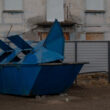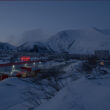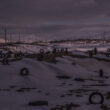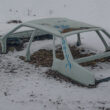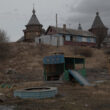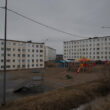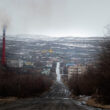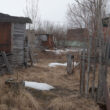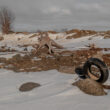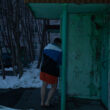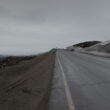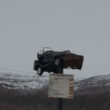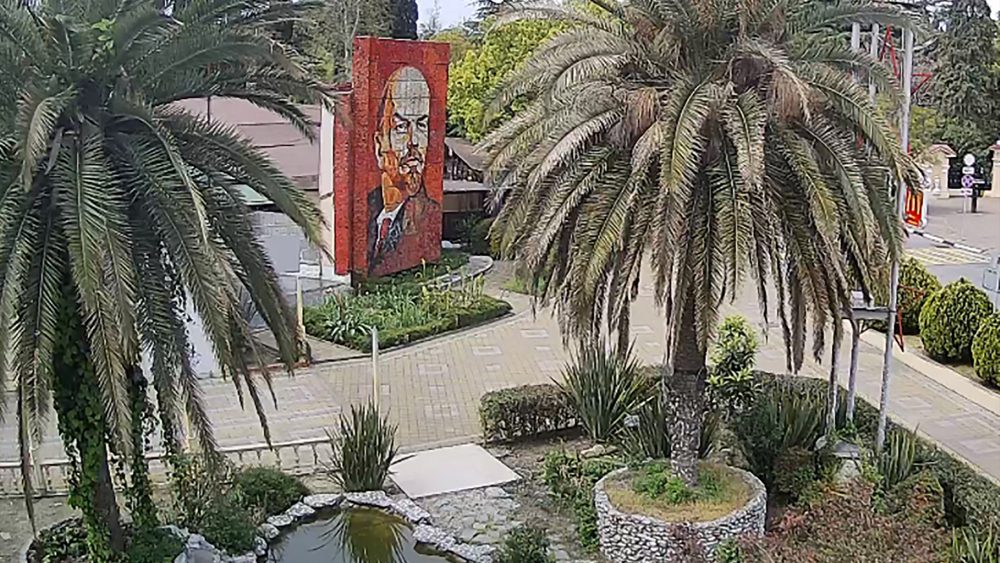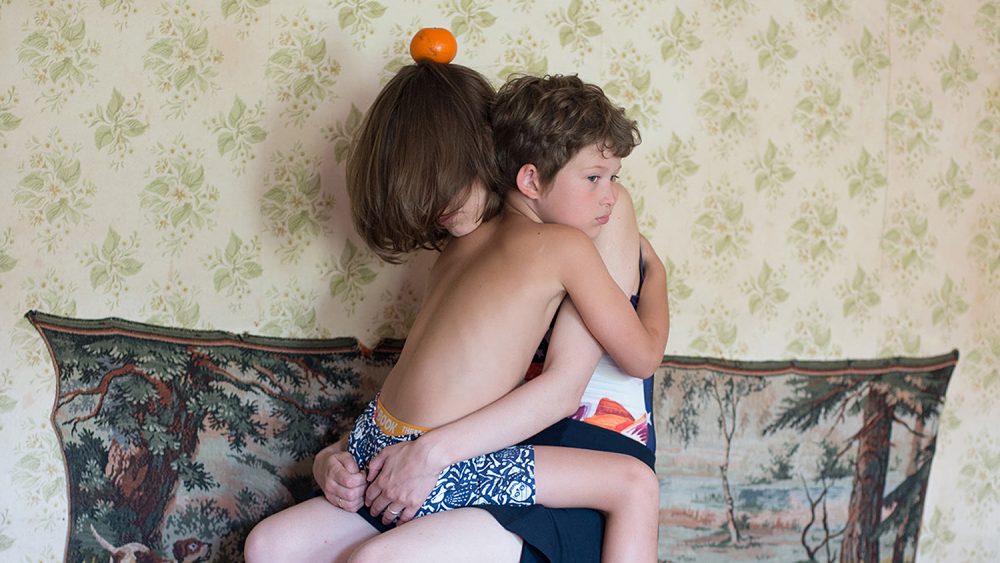World’s northernmost Mcdonald’s
The Russian North is an endless snow-white napkin, crumpled with hills of Khibiny mountains and giant snowdrifts. The treeless landscape here makes everything flat and all human manifestations seem to strive to overcome this flatness: striped pipes of factories soaring up into the sky, Soviet «copy-paste» apartment blocks and power line towers stick out of the ground, as if the rest of the map is still rendering. Some ghostly powers rework the scenery behind your back. Some giant mashed a car with its mighty fist and stuck on a pole at the entrance to a secret military base, perhaps as a warning to the soldiers. A herd of car tires migrating south along the snowy slopes freezes at you glance. Somewhere in the distance there is the world’s northernmost McDonald’s. Mind your step as you wade to it.
Nikel, Monchegorsk, Kirovsk – northern cities which are rarely an object to the touristic admiration. Not only the severe nature makes these cities similar to each other, but also the fact of rapidly declining population size. These cities are turning into abandoned spots in the endless northern landscapes. With the polar days and nights, you start to mess up the cycles and every day seems to last forever. Snowstorms in May make you not forget you came to the north and the mountains look like reliable guards for those who have not left the towns yet.
The locals are involved in their normal routines while being caught playing billiards, visiting a patriotic holiday, or just quietly walking along the embankment. They seem to be proud of living in the north but experiencing melancholy at the same time. ‘I don’t have summer clothes at all, I used to have but for now I just don’t need it,’ says the saleswoman at the street kiosk. ‘People here do not go out so often, we only have one café around the corner’, and not to forget the northernmost MacDonald’s in the world in the Russian capital of Arctics – Murmansk. The street kiosk, billiard table and all this snow-white mountain range were just 200 kilometers aways from there.
Anastasia Adasheva (1998) in a Russian photographer who explores the reality of the post-soviet Russian landscapes filled with surreal images and a hybrid blend of mysticism and post-spirituality.
